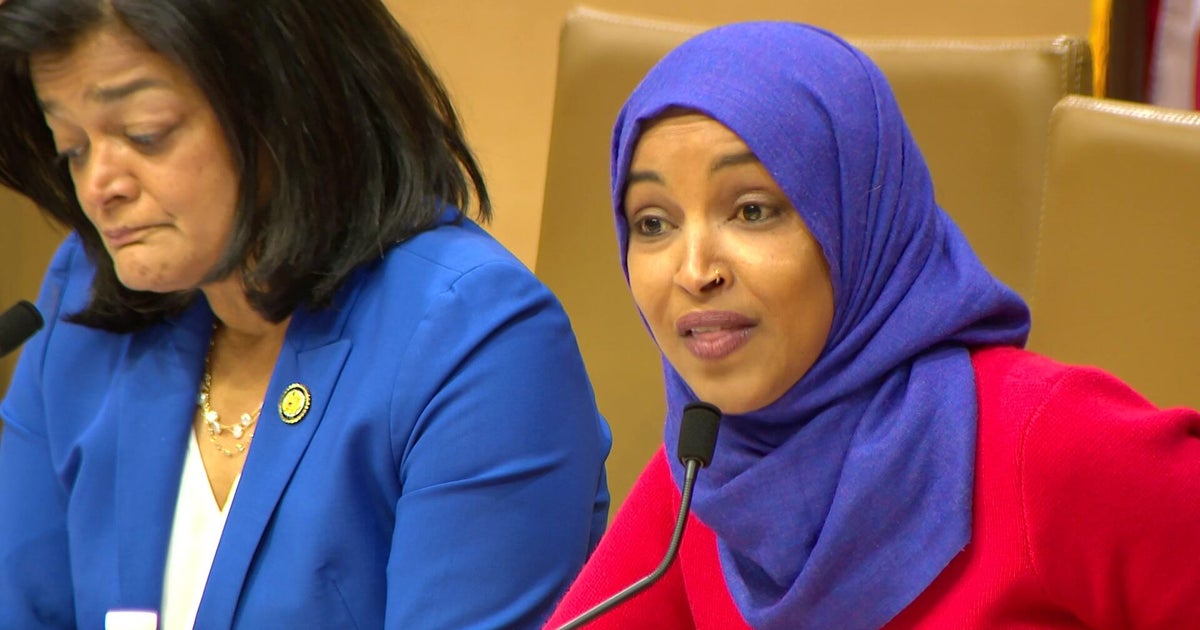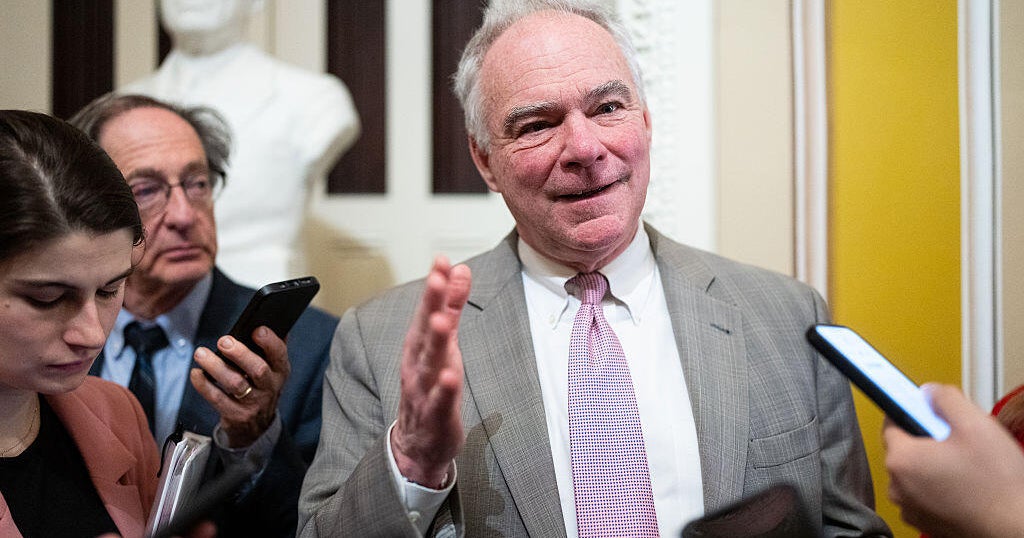House passes resolution condemning all bigotry, but not Rep. Omar
House Democrats this week likely wanted to focus on their marquee legislative reform package set to pass Friday morning. Instead, they toiled for days over if they should condemn one of their own.
The House of Representatives overwhelmingly passed a broad resolution Thursday afternoon condemning all bigotry in an effort to address remarks made by Rep. Ilhan Omar, D-Minnesota, who suggested last week pro-Israel political organizations "push for allegiance to a foreign country."
The final vote was 407 members in favor of the resolution, with 23 opposed and one member voting present. All the votes against the measure came from Republicans, including Wyoming Republican Rep. Liz Cheney, a member of the GOP leadership.
Omar voted in favor of the proposal. After the vote, Omar left the House floor and answered no questions from reporters, a common practice throughout this week.
The final resolution is much broader than just addressing anti-Semitism. The resolution denounces bigotry towards "traditionally persecuted peoples, including African Americans, Latinos, Native Americans, Asian Americans and Pacific Islanders and other people of color, Jews, Muslims, Hindus, Sikhs, the LGBTQ community, immigrants."
One item not confronted is Omar, who received throughout the week the vocal support of many colleagues. The intense backlash started last weekend when prominent Democrats, like House Foreign Affairs Chairman Eliot Engel and Appropriations Chairwoman Nita Lowey, who are both Jewish, individually condemned Omar's latest remark.
The resolution condemns anti-Semitism as "hateful expressions of intolerance that are contradictory to the values" of Americans, and it condemns "anti-Muslim discrimination and bigotry against minorities as contrary to the values of the United States."
It also lists examples of anti-Semitism, including "blaming Jews as Jews when things go wrong," and rebuts slurs such as "Jews control the United States Government or seek global, political and financial domination;" "Jews are obsessed with money;" and citizens who are Jewish are "more loyal to Israel or to the Jewish community than to the interests of their own nations."
The official language of the resolution changed throughout Thursday while it was circulated to members by Democratic Reps. Jamie Raskin of Maryland and Cedric Richmond of Louisiana, who urged their fellow Democrats to join them by voting for the motion "condemning anti-Semitism and anti-Muslim bigotry as forms of racism and prejudice antithetical to the values and aspirations of the American people."
CBS News obtained the earliest version of the resolution draft and found four additional portions were added to the final language, which likely came from members throughout the morning.
A line acknowledging anti-Semitism around the world notes, "Whereas Jews are the targets of anti-Semitic violence at even higher rates in many other countries than they are in the United States." Another line links U.S. foreign policy with combating anti-Semitism, saying it is a "foreign policy priority of the United States to monitor and combat anti-Semitism abroad."
A paragraph was added noting the shooting of nine black worshipers at Mother Emanuel church almost four years ago: "Whereas a white nationalist murdered nine African American worshipers at the Emanuel African Methodist Episcopal Church in Charleston, South Carolina, on the evening of June 17, 2015, in the hopes of igniting a nationwide race war."
And lastly, two religions groups -- Hindus and Sikhs -- were added to the paragraph on facing white supremacy in the U.S.
The resolution also outlines historical examples of accusations of "dual loyalty," including the race-based incarceration of Americans of Japanese descent during World War II, the questioning of President John F. Kennedy's loyalty to the Constitution because of his Catholic faith, and "the post-9/11 conditions faced by Muslim-Americans in the United States, including instances of Islamophobia and false and vicious attacks on and threats to Muslim-American members of Congress for alleged association with terrorism."
The resolution cites the 2018 Pittsburgh synagogue shooting, along with several attacks on mosques.
It affirms nine different beliefs of the House, including in part that the House "acknowledges the dangerous consequences of perpetuating anti-Semitic stereotypes in the United States and around the world, including the myth of dual loyalty. It also rejects attempts to justify "hatred or violent attacks as an acceptable expression of disapproval or frustration over political events in the Middle East or elsewhere."
And it states that the House "encourages all public officials to learn more about anti-Semitism, Islamophobia, racism, and other bigotry to ensure that the United States is able to live up to the principles of tolerance and religious freedom."
"Listen, anti-Semitic comments were made, I think we have to address them quickly," Rep. Josh Gottheimer, D-New Jersey, said. "You question someone's loyalty to the United States of America—because of someone's faith, you better address that." Gottheimer said that "it would be helpful" if Omar publicly apologized, as she did weeks ago when her first Israel remarks were condemned.
Omar appears to be making personal apologies already. Illinois Rep. Jan Schakowsky, who is Jewish, told reporters Thursday morning that Omar apologized to her "personally." Schakowsky also blamed the opposing party and the media for trying to "divide" the Democrats over Omar's remarks. "Ilhan was a refugee to the United States of America, she came from a different culture, she is learning important lessons right now," Schakowsky told reporters.
"It is shameful that it is being exploited by not just the Republicans but also by the press," Schakowsky added.
House Speaker Nancy Pelosi defended Omar Thursday. "It's up to her to explain but I do not believe she understood the full weight of her words," Pelosi told reporters at the Capitol. "I feel confident that her words were not based on any kind of anti-Semitic attitude." She also said, "It's not about her -- it's about these forms of hatred."
Camilo Montoya-Galvez contributed to this report.





